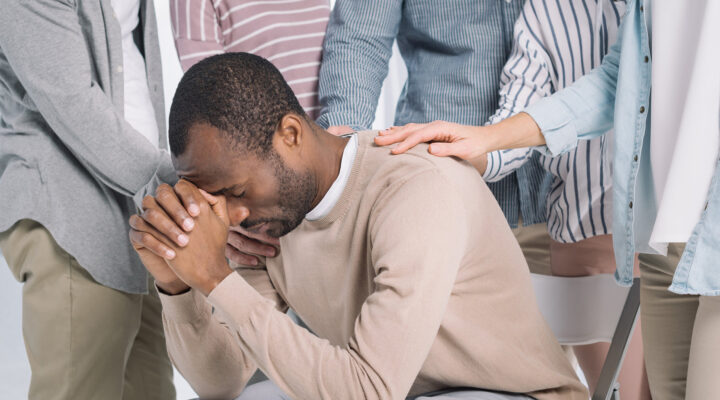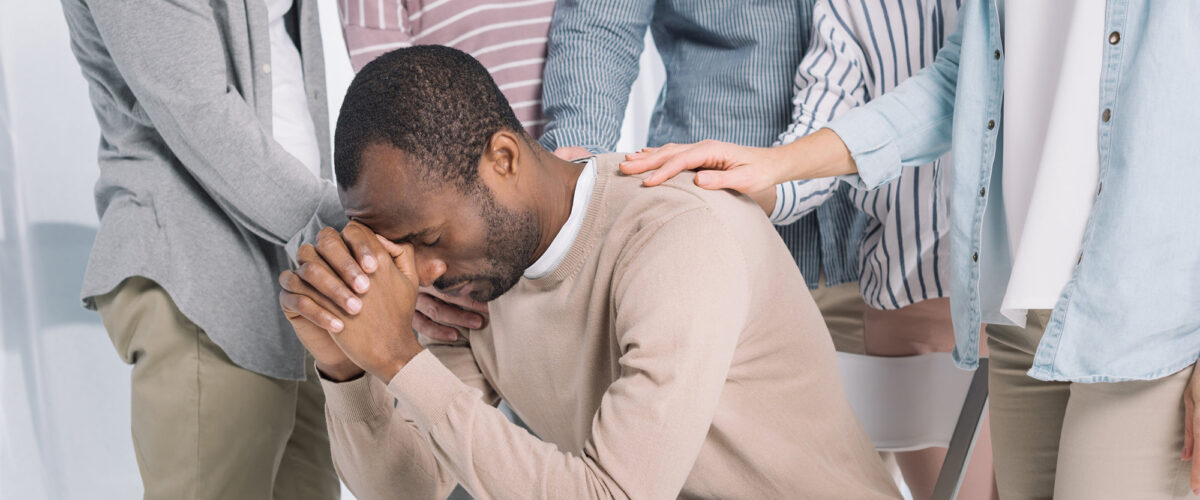While Baylor University has been in the news for its on-campus treatment of LGBTQ students, there’s another side to the story happening off campus that involves the controversial practice of conversion therapy.
Sexual orientation change efforts, or conversion therapy, are any attempt to change a person’s sexuality or cause them to abstain from same-sex attraction. Methods to achieve this can be physical, psychological or both.
Today, psychological conversion therapy is commonly used by religious groups, but it also was used in the past by licensed therapists when homosexuality was labeled as a mental illness.
In 2009, the American Pscyhological Association concluded that efforts to “change” sexual orientation are dangerous to LGBTQ people’s sense of identity and mental health, putting them at a higher risk for suicide.
No longer an accepted practice
Emma Church, a psychologist in private practice in Waco, Texas, said conversion therapy is a type of counseling where sexual orientation change efforts take place. Church said this is not typically performed by medical professionals because previous studies have found affirming therapy is the best way to treat LGBTQ patients.
See video testimonies about conversion therapy at Good Faith Media.
When religious ministries practice “thought based” conversion therapy, they use Scripture and counseling to encourage sexual orientation change or celibacy.
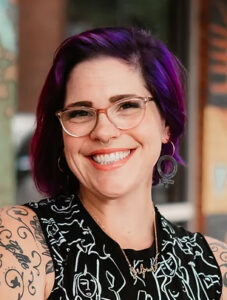
Emma Church
“A counselor will go into a session with an individual and really break down all and any of their sexual experiences,” Church said. “It’s this process of finding any little thing to discredit an inner knowing or an inner truth, which is someone’s sexual orientation. We know, scientifically, people are born with their sexual orientation. It is not a choice, but they will manipulate a person’s lived experience to validate a reality in which they can begin to believe that they are not gay or lesbian.”
Living Hope Ministries
Living Hope Ministries, based at First Baptist Church in Arlington, Texas, is one of these religious organizations practicing sexual orientation change efforts. Since 2001, the church has been led by Dennis Wiles, who also is a member of the Baylor University Board of Regents and serves on the regents’ Executive Committee.
Living Hope has 28 partner churches that are largely located in Texas, but the ministry has national reach through its online programs. Three of Living Hope’s partner churches are located in Waco: Harris Creek Baptist Church, Antioch Community Church, and Church of the Open Door. Those churches all attract Baylor students.
Ricky Chelette, executive director of Living Hope and a pastoral staff member at First Baptist Arlington, said partner churches donate money and recommend members of their congregation who are attracted to the same sex or are transgender to get help at Living Hope.
Chelette said people who come to Living Hope feel their sexual or gender identity is in conflict with their faith, and the leaders help their behaviors shift through discipleship.
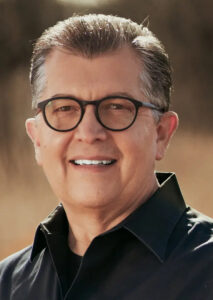
Ricky Chelette
“Nobody is ever made to stay here,” Chelette said. “You come here, you ask for help, and you show up as long as you want to show up. You leave whenever you want to leave. This isn’t a cult. This is a safe place where people can come and share about their feelings and their faith and discover who they are in Christ. As they do that, we find that they find healing.”
Chelette said he has been called manipulative and accused of damaging LGBTQ people psychologically.
“If believing that you belong to Jesus, and that God is your father, and that he has a good plan for your life, and he wants to prosper you and bless you because he is a good father … if we believe all of that is true, if that’s harmful, well, I guess religion as a whole has been harming people from the very beginning,” Chelette said.
One student’s story
Justin Tidwell-Davis, a 2009 Baylor alumnus, was referred to Living Hope by his mentor at Antioch while he was a Baylor student. He decided to start with the online forums. Living Hope offers different ways to be involved with its ministry, including online forums, group meetings, retreats and individual sessions.
Online forums are moderated and have restrictions on sharing personal information. Tidwell-Davis said participants could only go by their first names and describe in general terms where they lived. No photographs of the participants were allowed.
Tidwell-Davis said he first met Chelette on the online forums. Eventually, he decided it was time to reach out to Chelette about attending in-person group meetings and individual sessions. He began going to Living Hope in person in 2004.
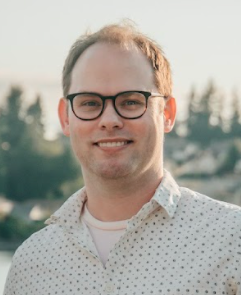 “We arranged to start doing individual counseling sessions once every two weeks, using an ex-gay curriculum called ‘Living Waters,’ which is produced by a man named Andy Comiskey through Desert Stream Ministries, and it’s the go-to curriculum for ex-gays,” he explained.
“We arranged to start doing individual counseling sessions once every two weeks, using an ex-gay curriculum called ‘Living Waters,’ which is produced by a man named Andy Comiskey through Desert Stream Ministries, and it’s the go-to curriculum for ex-gays,” he explained.
At the in-person group sessions, participants also were allowed only to share their first names and could not share contact information.
“Anything that could identify us was forbidden,” Tidwell-Davis said. “The reason we were told was that it was for our own protection. It would be too much of a temptation, and we couldn’t trust ourselves not to have sex or fall in love. Looking back, you can see how it’s all very much about control and manipulation.”
During the group sessions, there was a time when people would share if they had same-sex intercourse, watched gay pornography, kissed someone of the same-sex or engaged in other activities — in order to be held accountable.
Tidwell-Davis said he became hooked on the ex-gay ideaology.
“It takes a lot of energy to push yourself into that and to try to sustain it,” he said. “The more you conformed and the fewer mistakes you made, the more attention and praise you got from Ricky. I wanted to do well. I wanted to be a model ex-gay. So we formed a really close relationship, and he became a surrogate father figure. But as soon as anyone starts to question things, or leaves — you’re cut off.”
“I wanted to do well. I wanted to be a model ex-gay.”
Tidwell-Davis said he didn’t overcome his same-sex attraction, but he did lose any desire to have a romantic relationship.
“I didn’t experience attraction,” he said. “I didn’t think about relationships. I didn’t allow myself to feel those feelings. I didn’t allow myself to think about relationships. I was just kind of dead inside.”
Yet Tidwell-Davis said when he started making friends outside of Living Hope, those relationships showed him he could be accepted for who he is.
“The more time I spent with friends and letting myself be known, and growing deeper connections with them, and loving and laughing, it minimized the presence and the role of Living Hope in my life, even though I maintained a good relationship with Ricky and other folks,” Tidwell-Davis said. “I hadn’t rejected it. I just kind of settled into this neutral place. I had other responsibilities. I had people who loved me.”
Tidwell-Davis came out in 2011, which ended his relationship with Living Hope and Chelette.
Today, Tidwell-Davis is happily married to his partner, but the trauma from conversion therapy has given him a negative view of Christianity.
A different student perspective
Erica, a first-year Baylor masters student, also attended Living Hope while at Baylor. She requested to withhold her last name for safety purposes.
When she was a teenager growing up in Pennsylvania, a mentor suggested she listen to Living Hope’s podcast to help her work through her developing feelings toward females. Erica quickly became involved with the online forums.
When she arrived in Waco, she started going to Living Hope group meetings in person.
Erica said she doesn’t agree with everything Living Hope teaches and does, but she doesn’t feel pressured to become straight. The expectation is to abstain from a gay lifestyle. She said that over time, participants are taught that the same-sex attraction will become less intense.
“I know people who’ve gone through Living Hope, who … realized that (they are) attracted to people of the opposite gender, and they have gotten married,” Erica said. “From most of the people I know, that’s not been their experience. Their experience has been to … live out faithful singleness.”
Erica said she thinks ministries like Living Hope shouldn’t be banned because it is a middle ground between the two ends of the spectrum of acceptance of LGBTQ people.
Erica said she thinks ministries like Living Hope shouldn’t be banned because it is a middle ground between the two ends of the spectrum of acceptance of LGBTQ people.
“Who’s the one at the end of the day that gets to decide if that’s harmful or not?” she asked. “Shouldn’t it be up to the individual? If I didn’t have a place like Living Hope to go to when I was struggling with this, I think I would have been so caught up in the hostility of the church where there’s no one like me. I think I would have been in a darker place.”
Erica said she has tried to pursue Christian traditions that are affirming of LGBTQ people, but she hasn’t felt like she belonged.
“In a lot of these churches, I’ve stopped going to them just because I feel like I disagree with a lot of their other theology on other topics,” she said. “It just gets confusing because if I throw out this one part, does that mean I have to throw out all the other parts of traditional theology?”
Baylor’s response
The close proximity of Living Hope to Baylor allowed Tidwell-Davis and Erica to attend in-person meetings. Although Baylor representative Jason Cook said via email Baylor has no connection or involvement with Living Hope, Tidwell-Davis said having Wiles on the Board of Regents condones Living Hope.
“The university does not get involved in the personal, non-Baylor related matters of the Regents, whether it’s in their businesses, activities or churches,” Cook said via email.

Baylor University campus
Cook also pointed to President Linda Livingstone’s 2019 Presidential Perspective, where she states: “Baylor counselors do not practice or condone conversion or reparative therapy.”
“Baylor is committed to providing a loving and caring community for all students — including our LGBTQ students — because it is part and parcel of our university’s mission that calls us to educate our students within a caring community,” Livingstone said in a 2019 Presidential Perspective.
Support from First Baptist Arlington
Wiles said via email the church rents office space to Living Hope, and group meetings and individual sessions are conducted there. He declined an in-person interview but agreed to respond via email. He insisted that Living Hope does not practice “conversion therapy.”
According to the church’s website, as of 2019 First Baptist Arlington gave Living Hope $52,635 a year. This is an archived page, and the church’s website no longer states how much money it gives to Living Hope. However, Living Hope is listed on the church’s website as a “partner ministry” described as a place to “aid in the recovery of the sexually broken.”
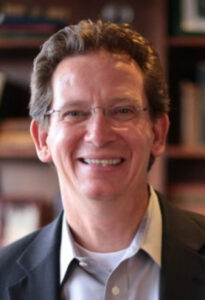
Dennis Wiles
On June 1, 2014, Wiles preached a sermon titled “Designed for Intimacy.” According to a manuscript of the sermon, he declared that while some people argue sexuality cannot be changed, in reality it is a refusal to “embrace the full redemptive power of the gospel” that prevents change. He also said the only sexual union blessed in Scripture is between husband and wife.
“Human beings have been guilty of rejecting God for centuries,” Wiles said in the sermon. “The ramifications of sinful disobedience has been disastrous for creation in general and the human family in particular. One area where the disastrous results of sin are most apparent is that of sexuality. Human depravity is the explanation for those who reject God’s original design for sexual intimacy in exchange for inadequate, substitutional behavior.”
Waco partner churches
Likewise, in an Oct. 24, 2021, sermon about sexuality, Jimmy Seibert, lead pastor at Antioch Church in Waco, said sexuality was designed by God only for heterosexual marriage. Seibert then introduced Andrew Franklin, who said he used to identify as gay but he realized this was not in line with Christianity.
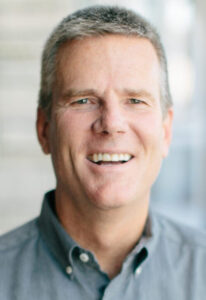
Jimmy Seibert
Franklin said Scripture is black and white, and the world may be full of gray areas, but Christians need to stand out from the world.
“Loving someone’s not just letting someone go down the route of homosexuality and trying to find someone to complete them that can never complete them, because they were never meant to complete them,” Franklin said. “That’s not loving someone. We have to show them the way of Jesus.”
A spokesman for Antioch Church declined to speak for this story.
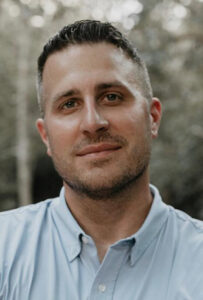
Jonathan Pokluda
A representative for Harris Creek Church also declined to comment. However, on the Living Hope website, Harris Creek Pastor Jonathan Pokluda is quoted about his church’s support for the ministry: “Ricky Chelette has truly blessed us with his ability to speak on homosexuality with authority and clarity. As one of the leading voices to the church on the topic of homosexuality, Ricky does an outstanding job explaining the nature and origin of sexual struggles.”
Ronnie Holmes, pastor of Church of the Open Door, said his goal is to disciple people who are “struggling” with same-sex attraction and gender identitiy to find wholeness in Jesus. He also described same-sex attraction as “twisted and perverse.”
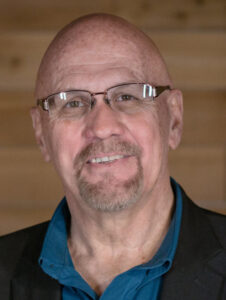
Ronnie Holmes
“We don’t come without baggage, but how do we help somebody process through identity, gender confusion issues, sexuality?” Holmes asked. “The Bible’s not silent on these things. We don’t have to beat people up, but we have to be truthful.”
Need for diverse viewpoints
Emma Church, the psychologist in Waco, said while the viewpoint expressed by Holmes does represent part of the Christian understanding, there are other parts of Christianity that fully support LGBTQ people. She believes religious schools like Baylor could help people grapple with their faith if they shared diverse biblical interpretations on controversial issues like sexualty and gender.
For schools like Baylor, the minimum ought to be offering “access to other forms of Christianity in which you can have a sexual minority identity and still be Christian,” Church said. “But they will not give that information. That is supremely problematic because people feel they have to lose their faith in order to gain themselves, and that’s not true.”
And in her observation, many survivors of conversion therapy “have a loss of faith.”
Looking back, Tidwell-Davis now believes it is dangerous for LGBTQ Baylor students to attend these partner churches. He believes Baylor needs to take direct action to protect students from conversion therapy and churches that support it.
“They’re turning a blind eye to what’s happening off campus,” Tidwell-Davis said. “Off campus, there’s this very harmful, painful, damaging and traumatic thing that young students like myself are being sent to because they’re told they need to.”
Emily Cousins is a 2022 graduate of Baylor University who has written for the student newspaper, the Baylor Lariat, and written articles for the Baylor Line Foundation. She is currently pursuing a career in journalism.
This article is published in collabortion with Good Faith Media, which has published multiple resources related to conversion therapy:
The perils of conversion therapy

